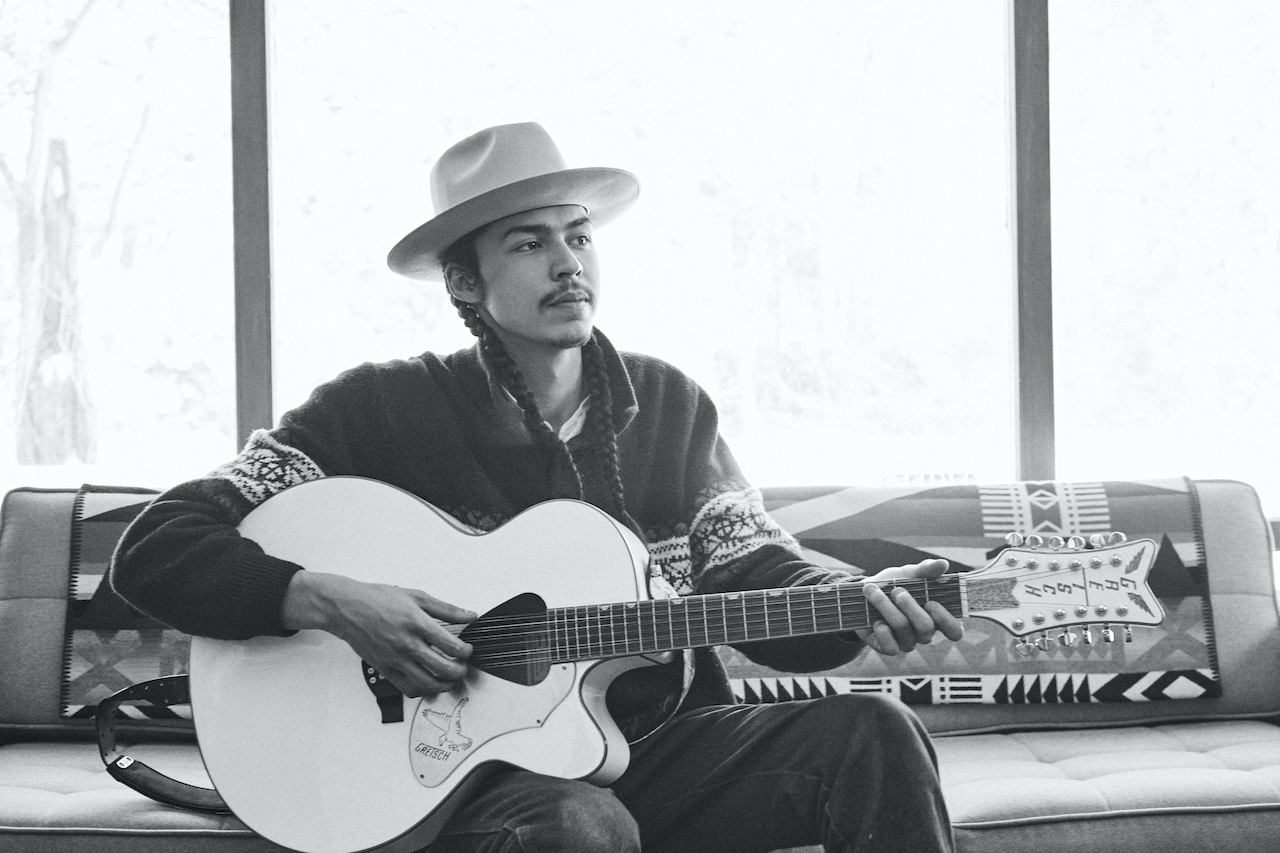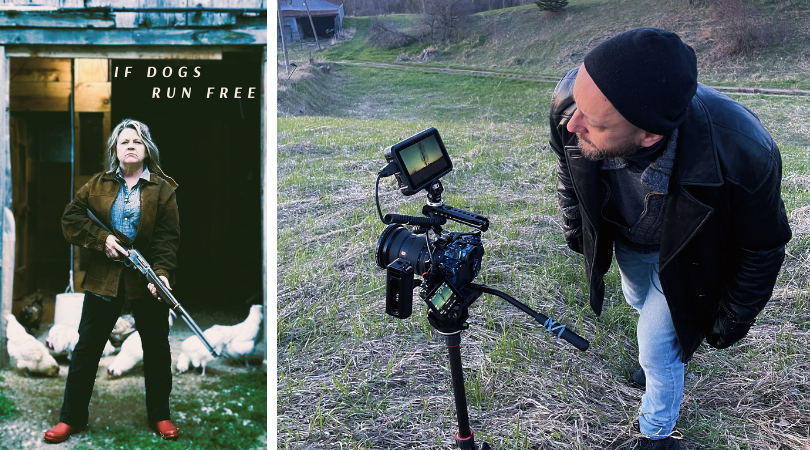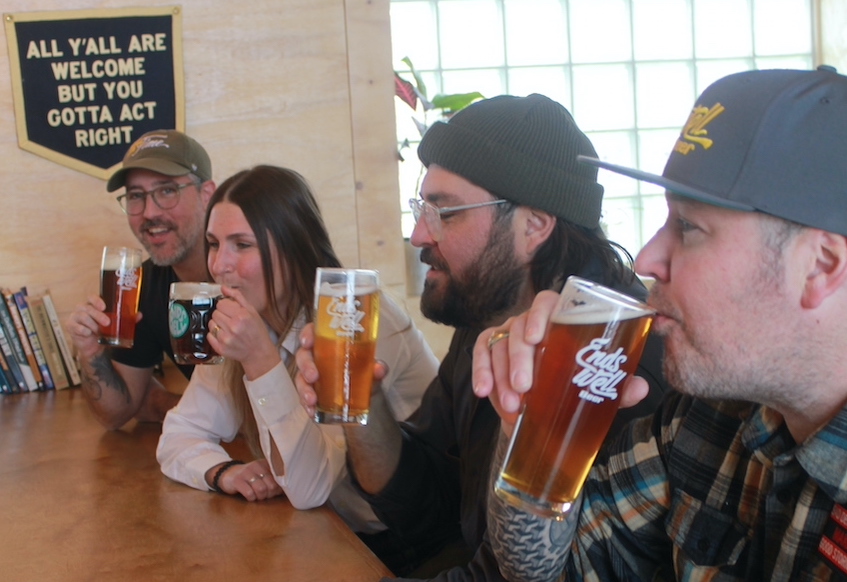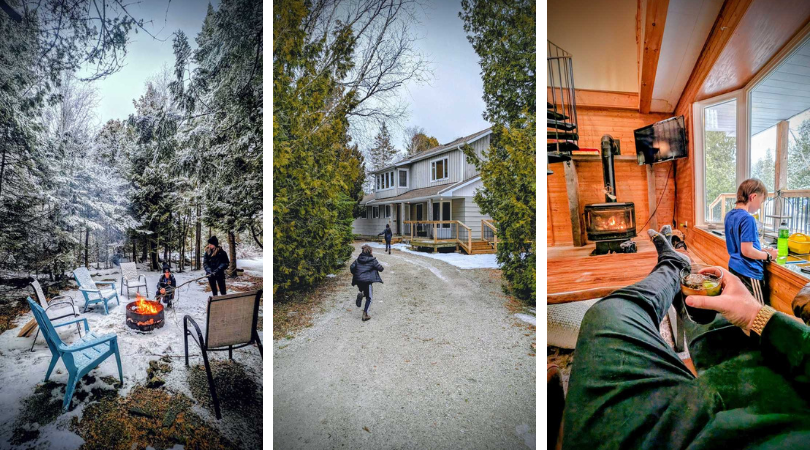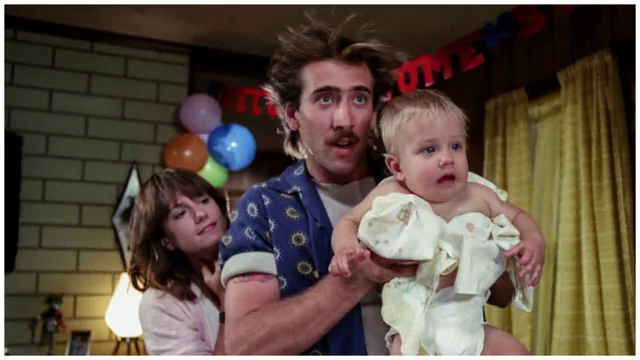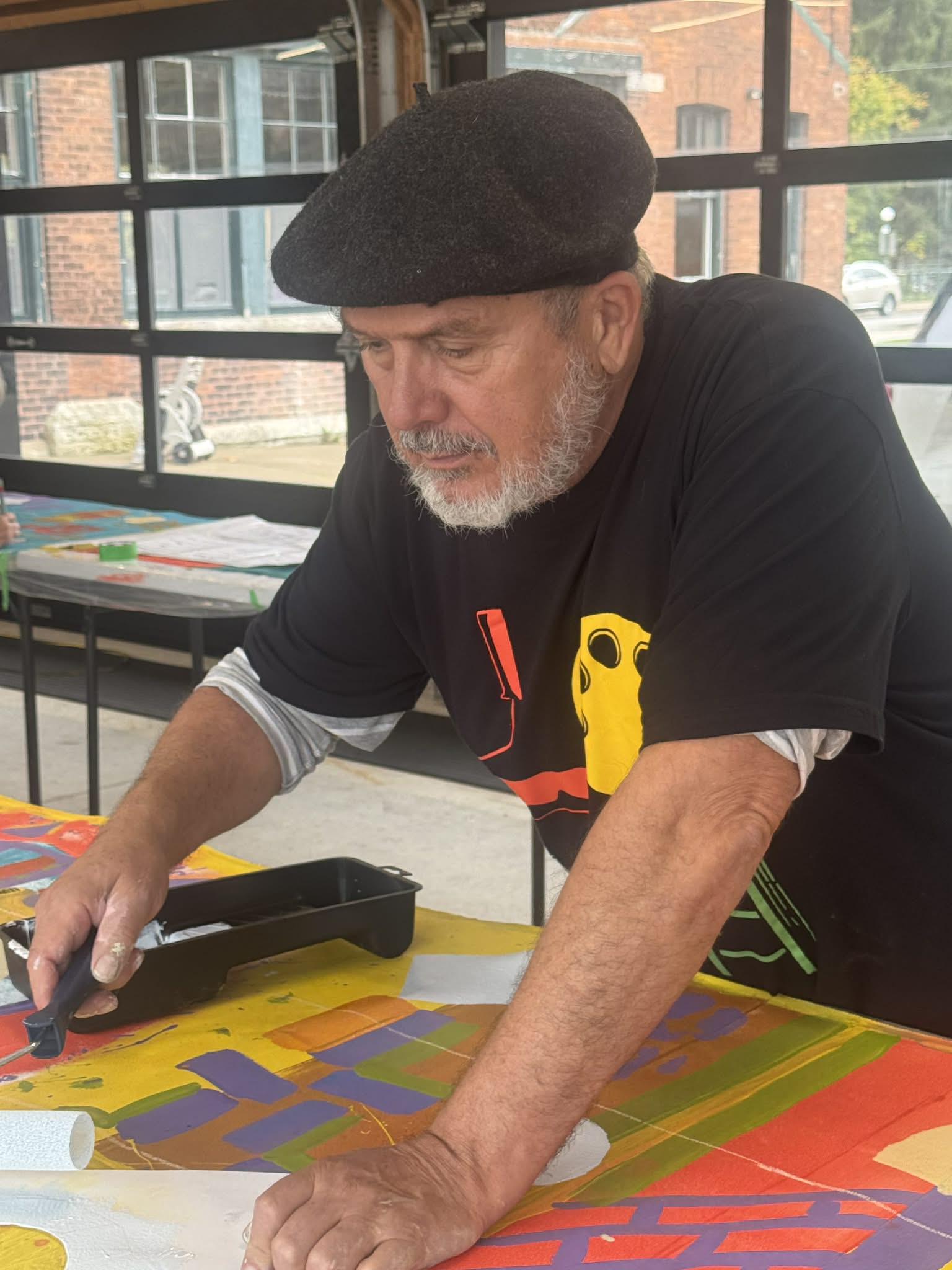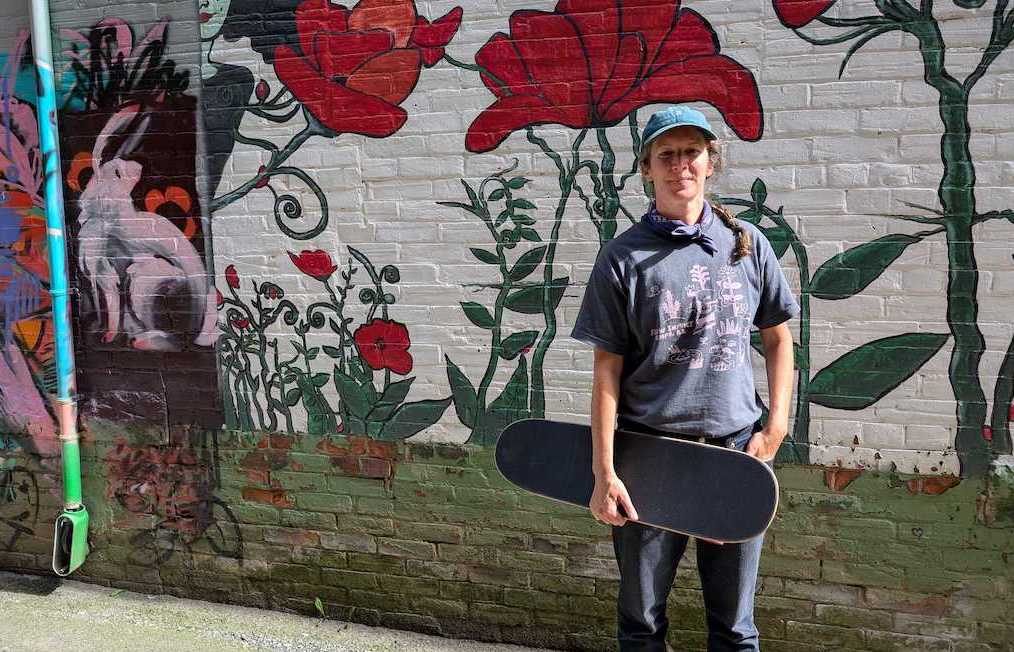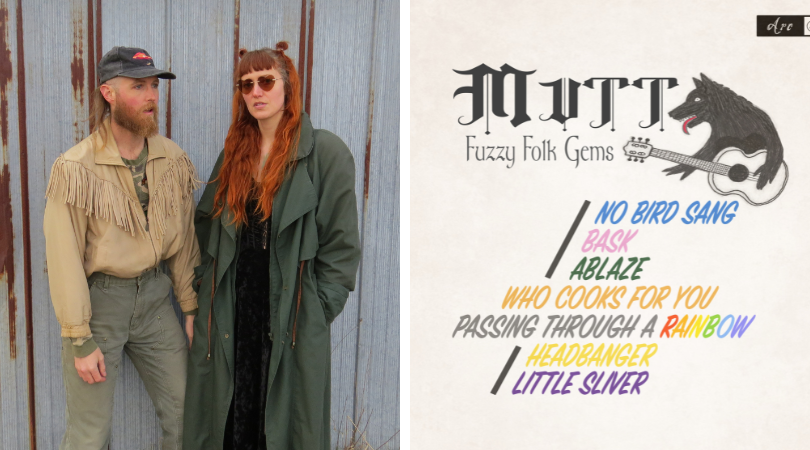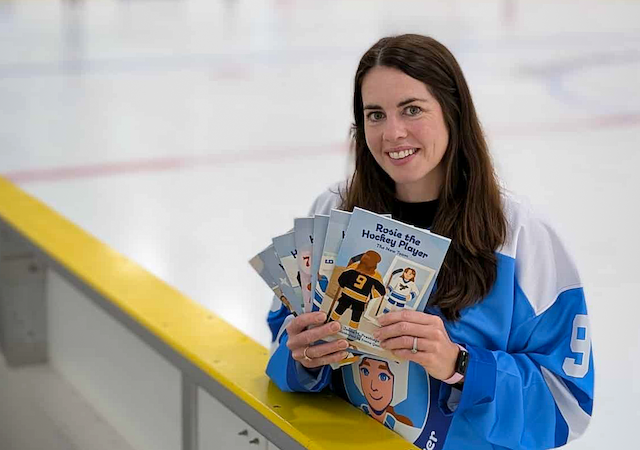The first time I met Jacob, we were sitting semi-circle in the foyer of a hotel in the wee hours of the morning after a full day of Summerfolk festival programming. We all shared beer from red cups and swapped songs while out-of-towners stretched their legs to show off their pickin’ chops. When the circle made its way to JD, he and his bandmate pulled out a rendition of Bascom Lamar Lunsford and Scotty Wiseman’s 1930s folk standard Good Old Mountain Dew. Immediately, I thought “damn, this kid is way cooler than I was at his age.”
He played the song through, delivering each line with the laid-back joviality of an old-timer, winding down after a dinner party and I knew he was the real deal.
If you’re from the area, he hardly needs an introduction at this point, but JD Crosstown has been taking songwriter nights, festival grounds, bar rooms and interprovincial tour stages by storm for the past few years, and his brand-new record Taking My time tells me he has no intention of slowing down any time soon.
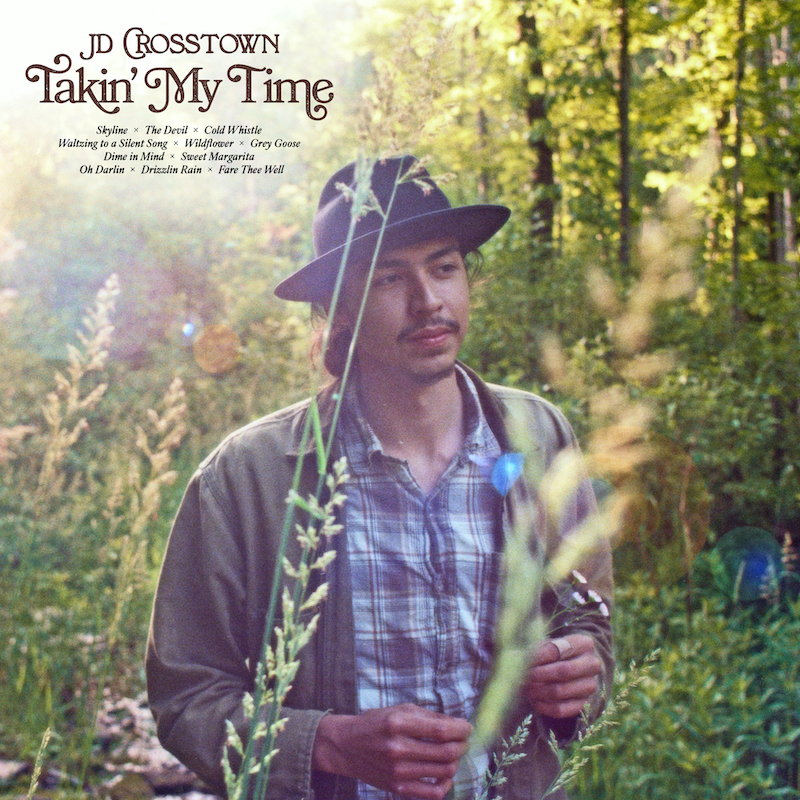
In the first track Skyline, we hear something Crosstown has yet to share in previous recordings: electric, full band accompaniment. As he sings “I’ll be back around again, I wish that I could say when,” we’re treated to the soft twang of country guitar, walking bass, fluent backing vocals, and the tasteful production of Aaron Goldstein.
JD is a master of summing up a lot with a little. In one hook, he sings “kill the days as the years go by,” explaining what, to me, is fundamentally wrong with how rushed we are in our day-to-day lives. Lyrics like these make me want to take a minute and name five things in front of me that I can feel, touch and smell so I can return to the present.
In Cold Whistle, the shuffling rhythm and Marty Robbin-esque pedal steel lines draw the curtains to a classic western-folk tale, while Alison MacGregor joins in to help emote the ache of missing someone “while hoping that the train that takes them away will bring them back to you someday.”
Crosstown paints scenes without mincing words or adding supplemental poetry, so it’s easy to place myself in his world. In Cold Whistle, I can see the unrelenting sun, feel the baked sweat on my skin, and taste the dust of the open plains (I’ve never been).
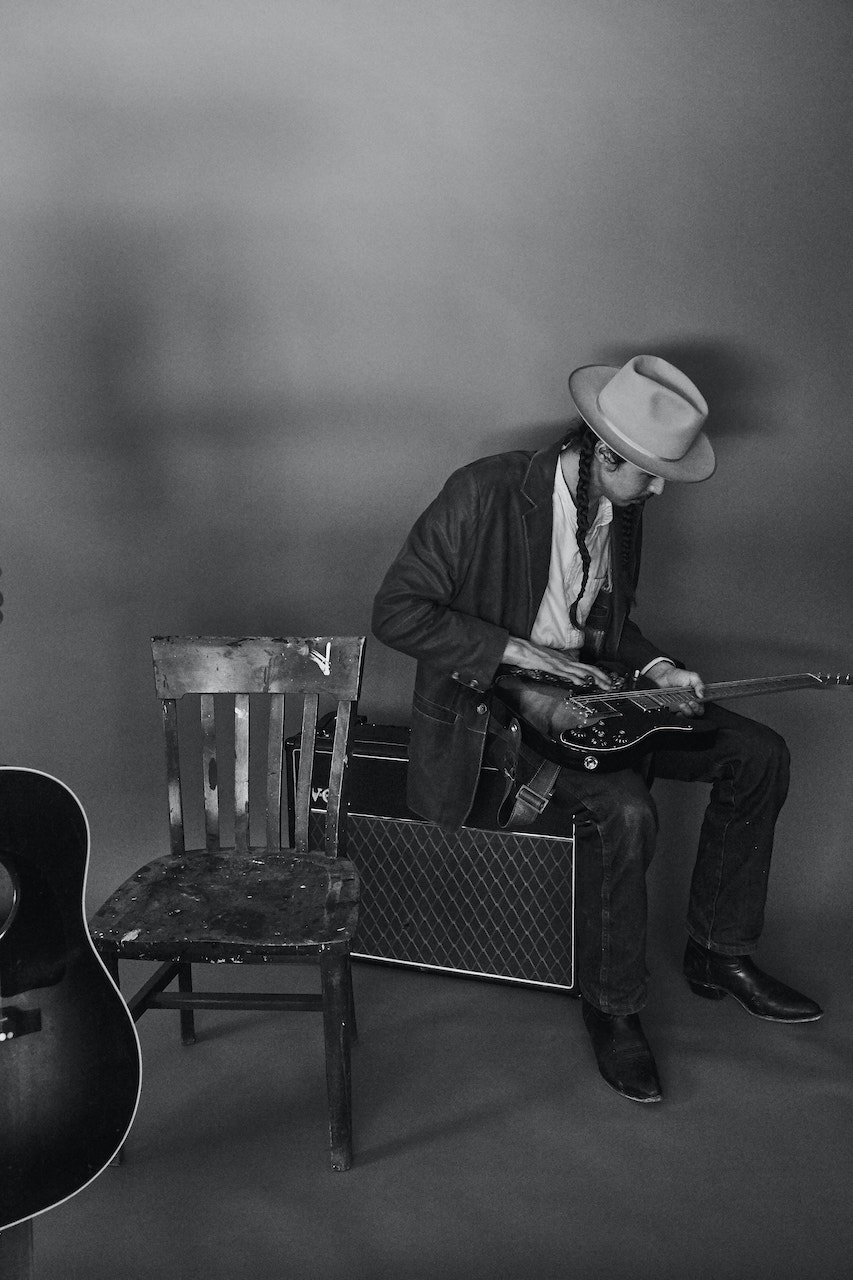
Turning the dial back and letting the tubes cool, JD next visits a beautiful, but sombre place in Grey Goose. On this one, his lyrics, intuitive melodic movement and finger-picking are on full display. He sings “the love I knew has now turned to stone,” as he delves into the harsh realities of addiction and loss; sometimes, we’re unable to help the ones we love, regardless of our efforts. One of the most vulnerable tracks on this effort, Grey Goose has an air of acceptance and peace, but sadness echoes through lines like “she tells herself the same old lies, to a little blue bottle that slowly runs dry.” Crosstown closes with the double entendre “she’s flying far away” leaving room for interpretation.
On Oh Darlin, we enter a smoky, Sunday afternoon performance in a small town parlour room. Songs like this one really give me an appreciation for the prudence this effort takes to ensure toes aren’t being stepped on. With each instrument holding its own space comfortably, nothing ever feels too busy, or takes away from the steel part being played, the line being delivered, or the violin chugging along. The whole record does a fantastic job of filling just enough of the room, while saving a seat and space for drinks on the coffee table.
I think there’s good reason for JD’s recent recognition on both a local and national stage. He’s the kind of artist who reminds us of something that once was; not necessarily of a simpler time, but of a feeling, a reminder that all a performer needs is a guitar, a story and ten minutes of your time.
He has a genuine approach, a sincerity about who he is as a performer. On stage, he isn’t trying to sell you between songs; he ignores the call to deliver a succinct elevator pitch to the audience, but instead writes from the heart and does so with a smile that you know he isn’t feigning.
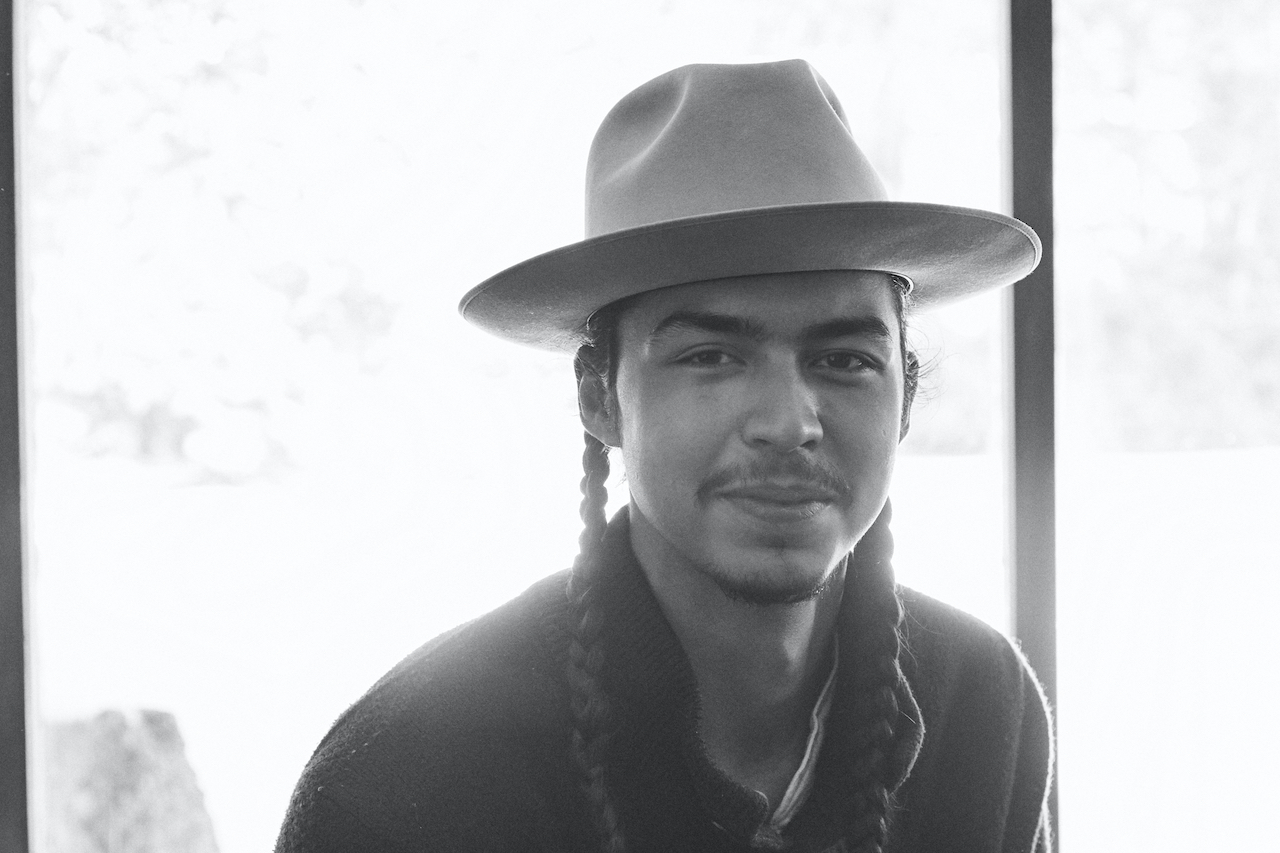
At times, he moves towards country, at times to trad-folk, and at times he’s downright rock n’ roll, but he isn’t emulating any of the above, he’s just leaning into what each song calls for and where the wind carries him. He’s never hiding, and as a writer that takes real vulnerability.
Taking My Time does something good art should do: it makes me an emotional observer in someone else’s stories. This ability that JD has honed, I think, is what people are talking about when they use the phrase “old soul.”
The final song on the record, Fare Thee Well, is an adieu ballad that offers a thematic conclusion. Joined again by Allison MacGregor, JD wishes the listener well. You can’t help but feel you’ve both been through a lot together over the last thirty minutes. In a way, you both have.
From the early scenes atop the skyline, to the smoky bar room chats and kitchen party jigs, this album is a journey. I recommend turning your phone right off, putting the vinyl on the turntable and just taking this record in for exactly what it is: a great piece of music.
Written by Marshall Veroni
Photos by Jen Squires

